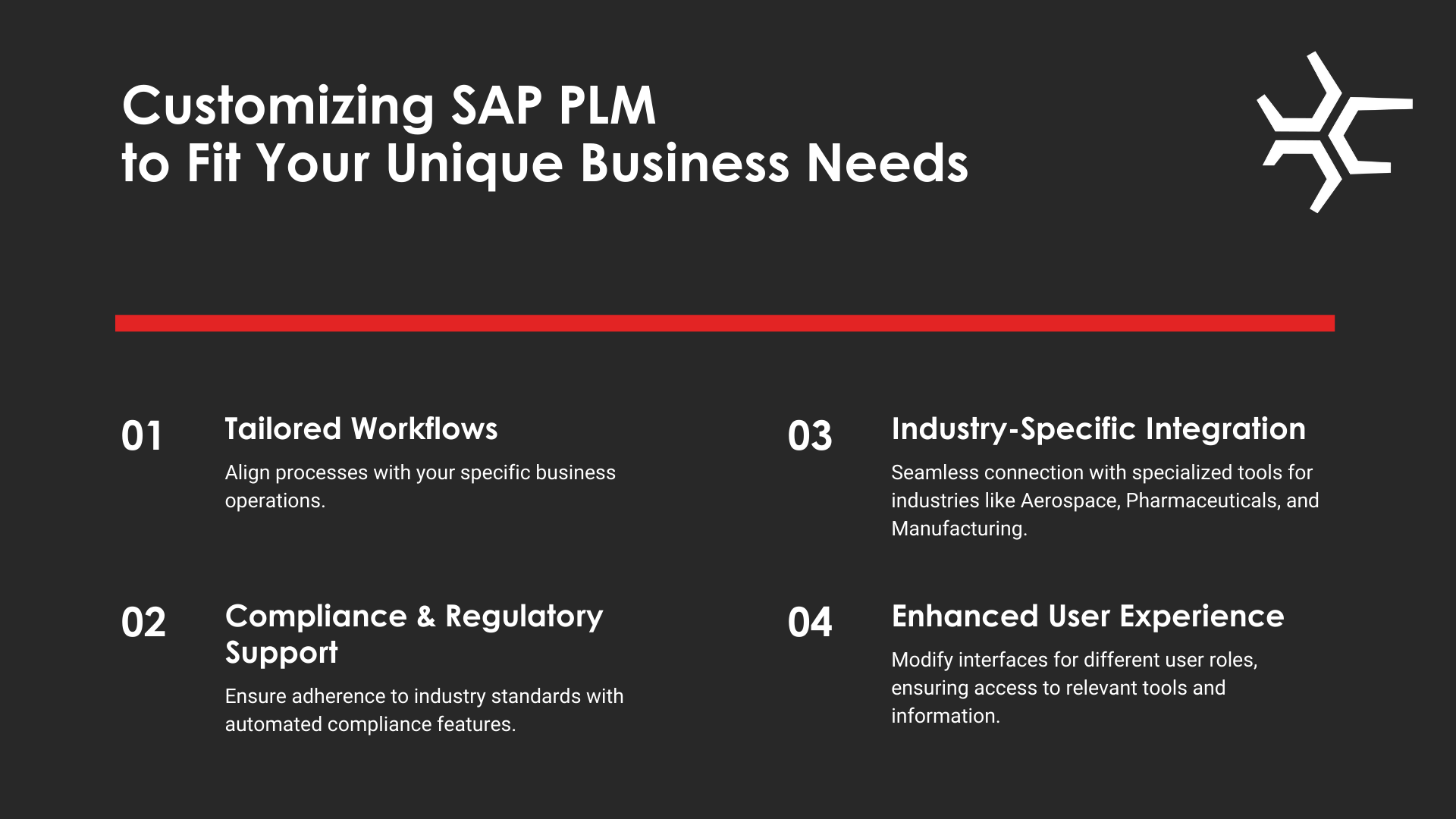Can SAP PLM be customized to meet specific industry or company requirements?
SAP Product Lifecycle Management (PLM) is a handy tool that helps you manage a product from start to finish, covering everything from its creation to when it’s phased out. However, businesses often have unique needs based on their industry, size, and specific operational challenges. This raises an important question: Can SAP PLM be customized to meet these specific requirements? The answer is a resounding yes.
Why Customization Matters
Every industry, and indeed every company within those industries, faces distinct challenges and requirements. For example, the pharmaceutical industry must navigate stringent regulatory requirements, while the automotive sector deals with complex supply chains and the need for rapid innovation. A one-size-fits-all solution might not effectively address the nuanced demands of these industries. Customizing SAP PLM ensures that the software can be tailored to fit specific processes, workflows, and compliance requirements, thereby maximizing its effectiveness and value.
How SAP PLM Customization Works
- Tailoring Workflows and Processes: SAP PLM allows companies to customize workflows to align with their specific operational processes. This means that whether a company needs to manage detailed engineering changes, complex approvals, or intricate project management tasks, the system can be configured to support these needs seamlessly.
- Integrating with Industry-Specific Tools: Many industries rely on specialized tools and software that are integral to their operations. SAP PLM can be integrated with these tools, ensuring smooth data flow and reducing the chances of errors. For instance, in the aerospace sector, integrating SAP PLM with CAD systems is crucial for managing complex designs and ensuring accurate version control.
- Meeting Compliance and Regulatory Requirements: Different industries are governed by various regulatory standards. SAP PLM can be customized to include features that help ensure compliance with these standards, whether it’s adhering to FDA regulations in the pharmaceutical industry or meeting ISO standards in manufacturing. This customization can include automated compliance checks, documentation management, and audit trails.
- Supporting Specific Product Lifecycle Needs: Companies often have unique product lifecycle requirements based on their market, customer base, and product complexity. SAP PLM can be tailored to manage these specific needs, whether it’s handling multiple product variants in the consumer electronics industry or managing long product lifecycles in the defense sector.
- Enhancing User Experience: Customization also extends to the user interface and experience. SAP PLM allows companies to modify the interface to match the roles and responsibilities of different users, ensuring that each team member has access to the tools and information they need, when they need it.
Added Value of Customization
Customizing SAP PLM brings several key benefits:
- Increased Efficiency: By aligning the software with specific business processes, companies can reduce bottlenecks and streamline operations, leading to faster time-to-market.
- Improved Compliance: Tailored compliance features help companies avoid costly fines and ensure that all products meet the necessary standards.
- Better Collaboration: Customization can facilitate better communication and collaboration across teams, whether they are located in the same office or spread across the globe.
- Higher ROI: By ensuring that the software fits the company’s needs perfectly, businesses can maximize the return on their SAP PLM investment.
Conclusion
SAP PLM is a robust and versatile tool, but its real power lies in its ability to be customized. By tailoring the software to meet their specific needs, companies can boost efficiency, stay compliant, and improve teamwork, giving them a real edge in today’s fast-moving market.

